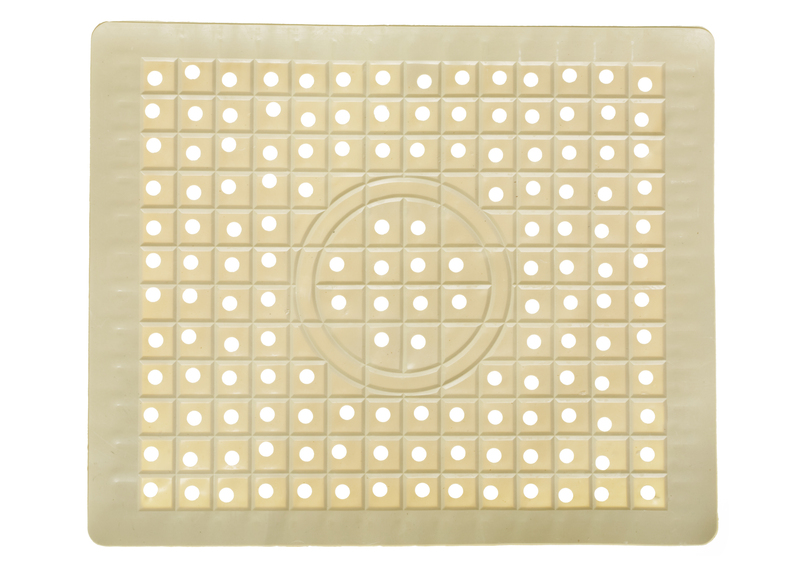Organic Cleaning Suggestions
Posted on 20/04/2025
As more and more people become conscious of the ingredients used in household cleaning products, the demand for organic cleaning solutions has surged. Conventional cleaning products often contain harsh chemicals that can be detrimental to both health and the environment. Organic cleaning products, on the other hand, are made from natural ingredients and are free from synthetic pesticides, fertilizers, and other artificial chemicals. This article will delve into various organic cleaning suggestions, exploring their benefits and offering practical tips for efficiently cleaning your home.
Benefits of Organic Cleaning
Health Advantages
The use of organic cleaning products reduces exposure to potentially harmful chemicals. Many popular household cleaners contain Volatile Organic Compounds (VOCs) that can evaporate into the air and lead to respiratory issues, headaches, and other health problems. Organic cleaning solutions are typically free from these compounds, creating a safer indoor environment, especially for children, pets, and those with respiratory conditions or allergies.
Environmental Impact
Using organic cleaning products can significantly reduce your household's environmental footprint. Chemical cleaners often contain non-biodegradable substances that can pollute water sources and harm wildlife. Organic cleaners, usually biodegradable and made from renewable resources, minimize environmental disruption. Additionally, many organic cleaning products come in recyclable or reusable packaging, reducing waste.

Essential Organic Cleaning Products
Baking Soda
Baking soda is an outstanding all-purpose cleaner. It is mildly abrasive and can effectively scrub away grime without scratching surfaces. It is excellent for deodorizing as well.
Usage Tips:
- Mix baking soda with water to create a paste for cleaning sinks, bathtubs, and countertops.
- Sprinkle a bit of baking soda on carpets before vacuuming to eliminate odors.
Vinegar
Vinegar is a powerful disinfectant and can break down grease and grime. Its acidic nature makes it ideal for eliminating hard water stains and mineral deposits.
Usage Tips:
- Mix equal parts of water and white vinegar in a spray bottle for an all-purpose cleaner.
- Use undiluted vinegar to clean tough stains on glass shower doors and around faucets.
Essential Oils
Essential oils not only provide pleasant aromas but also have antibacterial and antifungal properties. Popular choices like tea tree oil, lavender oil, and eucalyptus oil can enhance your cleaning efforts.
Usage Tips:
- Add a few drops of essential oil to your homemade cleaning solutions for added fragrance and disinfecting power.
- Combine essential oils with baking soda and sprinkle in areas that need deodorizing.
Room-by-Room Cleaning Guide
Kitchen
The kitchen is one of the most frequently used rooms in the house and can quickly accumulate dirt, grease, and bacteria.
Countertops and Surfaces:
- Use a mixture of water, vinegar, and a few drops of lemon essential oil to wipe down surfaces.
- For stubborn stains, sprinkle baking soda on the area and scrub with a damp cloth.
Oven and Stovetop:
- Make a thick paste from baking soda and water, apply it to the inside of the oven, and let it sit overnight. Wipe clean with a damp cloth the next day.
- For stovetops, spray vinegar on the surface and scrub with a baking soda paste.
Sink and Drains:
- Pour a mixture of baking soda and vinegar down the drain to clear out blockages and deodorize.
Bathroom
Bathrooms can harbor bacteria and mold, so it is crucial to keep them clean and fresh.
Tiles and Grout:
- Mix hydrogen peroxide with baking soda to form a paste. Apply to grout and scrub with a toothbrush.
Toilet:
- Pour a cup of vinegar into the toilet bowl and let it sit for 30 minutes before scrubbing with a toilet brush.
Shower and Bathtub:
- Spray a mixture of vinegar and water on tiles and tub surfaces, then scrub with a sponge or cloth.
- For moldy areas, apply tea tree oil directly or mixed with vinegar.
Living Areas
Living areas can benefit from simple, organic cleaning methods to maintain a fresh and welcoming environment.
Furniture:
- Dust furniture with a cloth dampened with a little water and essential oil.
- For wooden furniture, use a mixture of olive oil and lemon juice as a natural polish.
Floors:
- For hardwood floors, a solution of water and vinegar can be used, but it should be applied sparingly to avoid water damage.
- For carpeted areas, sprinkle baking soda onto the carpet, let it sit for 15 minutes, and then vacuum.

Additional Tips for Organic Cleaning
DIY Cleaning Recipes
Creating your cleaning solutions at home ensures you know exactly what goes into them. Here are a couple of easy DIY recipes:
All-Purpose Cleaner:
- 1 cup white vinegar
- 1 cup water
- A few drops of essential oils (such as lavender, lemon, or tea tree)
Combine in a spray bottle and shake well before each use.
Glass Cleaner:
- 1 cup water
- 1 cup vinegar
- 1 tablespoon cornstarch
Mix in a spray bottle, then shake well. Spray on glass surfaces and wipe with a microfiber cloth for a streak-free shine.
Regular Maintenance
Consistent, small cleaning efforts can reduce the need for intensive cleaning sessions. Wipe surfaces and clean high-traffic areas frequently to prevent dirt and grime from building up.
Ventilation and Fresh Air
Promote good air quality by frequently opening windows to ventilate your home. This reduces indoor air pollutants and freshens the air naturally.
Conclusion
Adopting organic cleaning practices can significantly enhance the health and safety of your home while reducing its environmental footprint. By using natural, non-toxic ingredients such as baking soda, vinegar, and essentials oils, you can effectively clean every room in your house. The additional benefits of saving money and customizing your cleaning solutions to your preferences make organic cleaning a practical and eco-friendly choice. By following the suggestions provided in this article, you can maintain a clean, healthy, and sustainable living environment.
Latest Posts
Deep Cleaning: Kitchen Edition
Suede Sofa Cleaning: Home Remedies
Pet-Friendly Carpet Maintenance Guide



